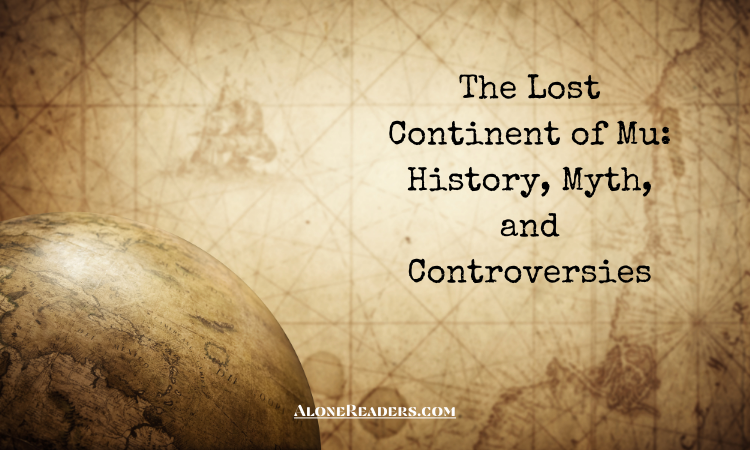
The tale of lost civilizations, submerged continents, and advanced ancient cultures has fascinated humankind for centuries. One such enigmatic tale is that of the Lost Continent of Mu. This article aims to provide an in-depth examination of the myths, evidence, and debates surrounding this legendary lost continent.
The concept of a lost continent named "Mu" originates from the works of 19th-century traveler and writer Augustus Le Plongeon. After studying the Mayan ruins in Yucatán, Le Plongeon claimed that he had translated ancient Mayan writings which allegedly showed that the Mayan civilization was older than the ancient civilizations of Greece and Egypt. He proposed that the Mayans were the remnants of an older civilization that existed on a now-sunken continent called Mu, located in the Atlantic Ocean.
According to Le Plongeon, Mu was a vast continent, believed to be the cradle of civilization, that sank into the ocean after a catastrophic event. The survivors of this catastrophe supposedly went on to establish the ancient civilizations of Egypt, Mesopotamia, and India.
The idea was further popularized by James Churchward in the early 20th century. Churchward's accounts were more elaborate, placing Mu in the Pacific Ocean rather than the Atlantic. He described Mu as a paradise, home to an advanced civilization of 64 million inhabitants, spanning an area nearly three times the size of modern-day India. This advanced civilization, according to Churchward, had complex infrastructure, advanced technology, and a written language.
Churchward claimed to have deciphered ancient tablets from India and the Pacific islands that detailed the history of Mu. He believed the continent sank due to volcanic eruptions and seismic activity around 12,000 years ago.
Both Le Plongeon and Churchward based their theories on purported translations of ancient texts and symbols. However, their methods and conclusions have been met with significant skepticism from the scientific community:
Mayan Texts: No reputable Mayanist scholar has found any reference to a continent named Mu in Mayan writings.
Nacaal Tablets: Churchward claimed to have translated tablets from a lost Nacaal civilization, which documented Mu's history. However, there's no archaeological evidence of such a civilization or these tablets.
Geological Evidence: From a geological standpoint, there's no evidence to suggest a large continent existed and sank in the locations proposed. Modern plate tectonics also disproves the feasibility of such a large landmass sinking in the described manner.
The tale of Mu bears similarities with other lost continent myths, like Atlantis and Lemuria. While Atlantis's story comes from the writings of Plato, Lemuria was postulated as a lost land connecting Madagascar with India, explaining the presence of lemurs on both lands. Like Mu, both these legends have transformed over time, accumulating a mixture of fact, fiction, and speculation.
Despite its controversial origins, the legend of Mu has left a lasting impact on popular culture. It has been featured in:
Literature: Several novels and stories have used Mu as a backdrop, integrating its advanced civilization and tragic end into their plots.
Films and Television: Mu has appeared in various movies, often portrayed as a mysterious land with ancient secrets.
Music: Various artists have been inspired by the legend, creating albums or songs dedicated to the lost continent.
The Lost Continent of Mu, like other tales of submerged lands and ancient civilizations, speaks to our collective fascination with our past and the mysteries of our planet. While there's limited tangible evidence to support the existence of Mu, its story serves as a cautionary tale about the dangers of interpreting ancient texts without rigorous academic scrutiny. Nevertheless, as a cultural and mythological concept, Mu continues to captivate and inspire.